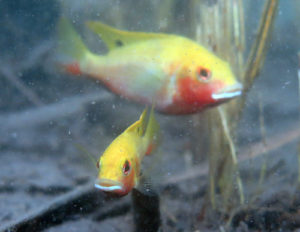Ever since being a small child watching wildlife documentaries I have been fascinated by the animal kingdom. While still at a high school, I volunteered at a seal sanctuary in Poland and this was my first contact with conservation biologists. Influenced by this experience I decided Animal Science studies was the right path for me and I enrolled at the Warsaw University of Life Sciences. During my Bachelors I took a keen interest in molecular biology while studying the genetic structure of the brown bear population in the Tatra Mountains. With the laboratory experience from this research, I started my Master’s degree in Molecular Biology at the University of Warsaw, working with a team of conservation geneticists researching wolf populations. My thesis was focused on major histocompatibility complex (MHC) genes variability between different wolf populations.
Following this, I made the decision to continue my journey deeper into the world of molecular evolution. Moving to the Czech Republic in 2016 to join the FishEvo group was a great opportunity, which allowed me to combine both field and laboratory data to study adaptations to different environments in order to see the ‘bigger picture’. My Ph.D. project, entitled Evolution of vision in West African cichlid fishes, is focused on the adaptation of vision in cichlids to different light environments at different depths. To conclude how and on which level such adaptations have arisen I analyze genomic and transcriptomic data, as well as using other methods such as fluorescent in-situ hybridization.
Publications:
Musilova, Z., Indermaur, A., Bitja-Nyom, A.R., Omelchenko, D., Kłodawska, M., Albergati, L., Remišová, K. & Salzburger, W. (2019). Evolution of Visual Sensory System in Cichlid Fishes from Crater Lake Barombi Mbo in Cameroon. Molecular Ecology, 28 (23), 5010-5031.
Lupše, N., Kłodawska, M., Truhlářová, V., Košátko, P., Kašpar, V., Nyom, A. R. B., & Musilova, Z. (2022). Developmental changes of opsin gene expression in ray-finned fishes (Actinopterygii). Proceedings of the Royal Society B, 289(1986), 20221855.
